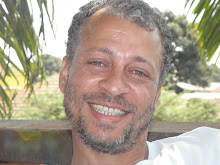sexta-feira, 12 de outubro de 2012
Carlos Gomes Jr.: "CEDEAO agiu desastrosamente"
Guinea Bissau's coup complacency
By Syma Tariq/Africa Report
The deposed prime minister and leading presidential candidate, now living in exile, complains that West African leaders have sought too much compromise with rogue elements of the military. Deposed prime minister Carlos Gomes Júnior believes that the country "faces gloomy prospects" if the current government – formed after a military coup ousted the ruling Partido Africano da [I]Independência da Guiné e Cabo Verde[/I] (PAIGC) in April – stays in power. "The government I was leading had very high scores in performance and good governance, which was recognised by the Guinean people. That is the reason the army wanted us out," Gomes Jr says from Lisbon, where he and advisers are now living in exile.
In a country rife with political instability, military coups and a thriving drug trade since its 1974 independence from Portugal, the politician believes that only a United Nations-led intervention will restore stability. The aid-dependent country is now headed by a military command whose leadership has been mediated by the Economic Community of West African States (ECOWAS). "ECOWAS has acted disastrously," Gomes Jr continues, adding that Nigeria – which has just announced training for troops to go into Guinea-Bissau – Côte d'Ivoire, Senegal and Burkino Faso have eroded the principle held by ECOWAS and the African Union of zero tolerance for coups.
"Guinea-Bissau is not a self-sufficient country. It depends on the international community to guarantee that the basic needs of its population are met. The majority of the coup government have no governmental experience, legitimacy or credibility to convince international partners that it can continue with cooperation agreements." The Comunidade dos Países de Língua Portuguesa's tough stance – seeking a stabilisation force and completion of the interrupted presidential election – has encouraged Gomes Jr. and the PAIGC to refuse compromise and has left ECOWAS as the broker. "Angola has always been a strong ally of Guinea-Bissau and will continue to betoitspeople," Gomes Jr says.
But an ECOWAS force has now replaced the Lusophone nation's military support mission in Guinea-Bissau. A recent concession has resulted in the interim government, led by Manuel Serifo Nhamadjo, agreeing to an ECOWAS deadline of April 2013 for new elections – a year after Gomes Jr was seized by the army. "On 12 April we were arrested and held by soldiers, in an abusive way, for 14 days," Gomes Jr says of the events that occurred after he won the first round of the elections.
"ECOWAS made the necessary arrangements with the military officers involved in the coup, got us freed and taken dir- ectly to Abidjan, where we were not informed of the terms and status of our stay. That is when we decided to come to Portugal – where we have more freedom to fight against those who seized power in Guinea-Bissau." In early September, Gomes Jr was at the 67th United Nations General Assembly, where he hoped to solidify his legitimacy. In spite of the uncertain future, he doubts the likelihood of "total state collapse" and believes free and fair elections can be held: "I have faith in the international community, personified by the UN, because of what has been its coherence since the beginning:


